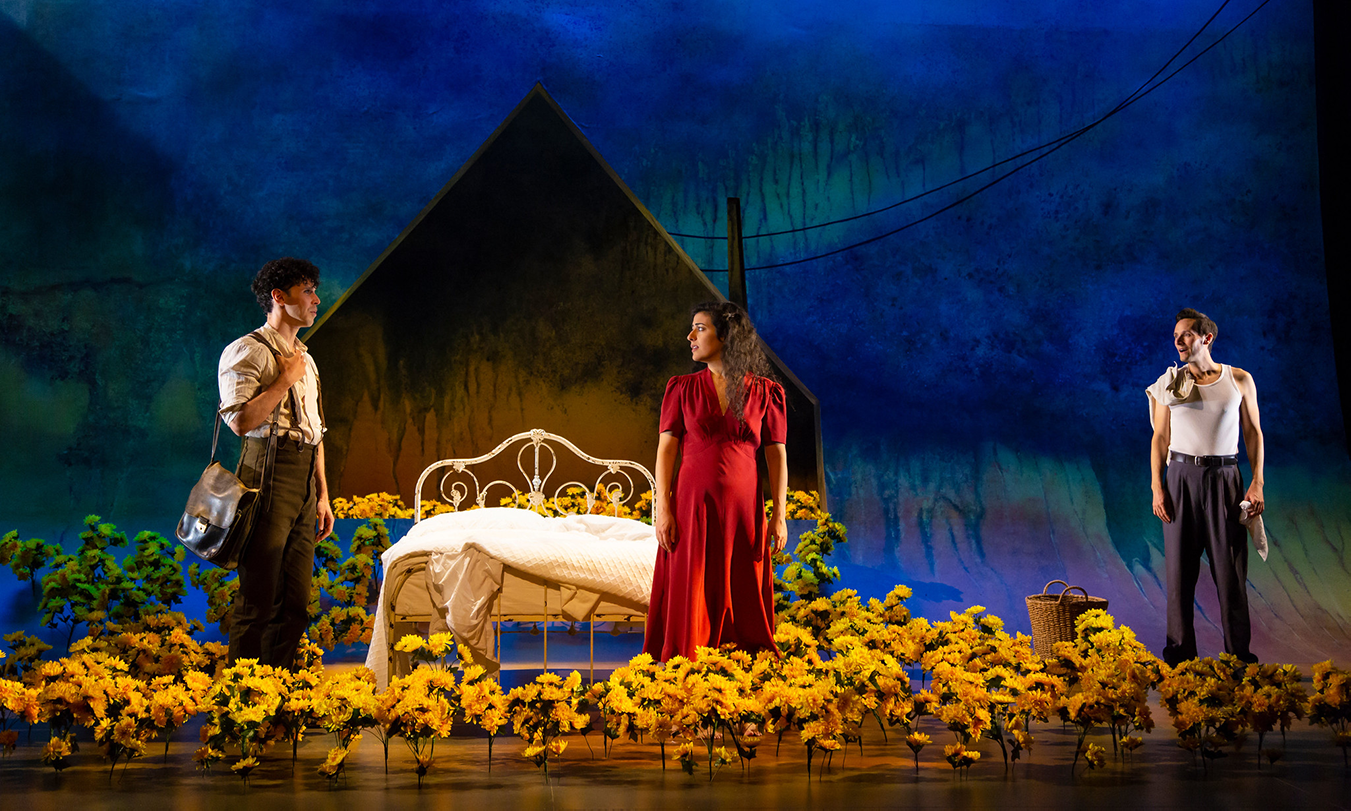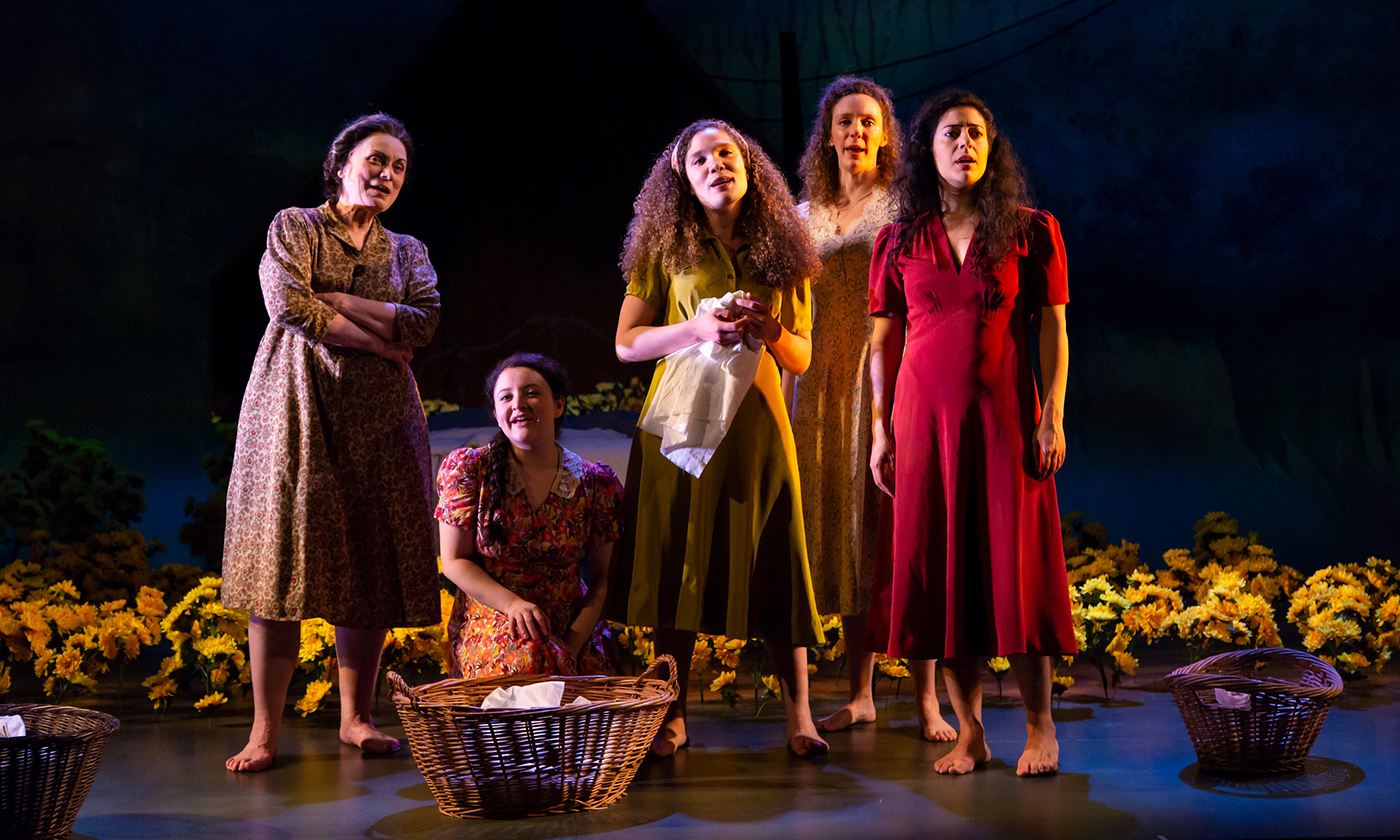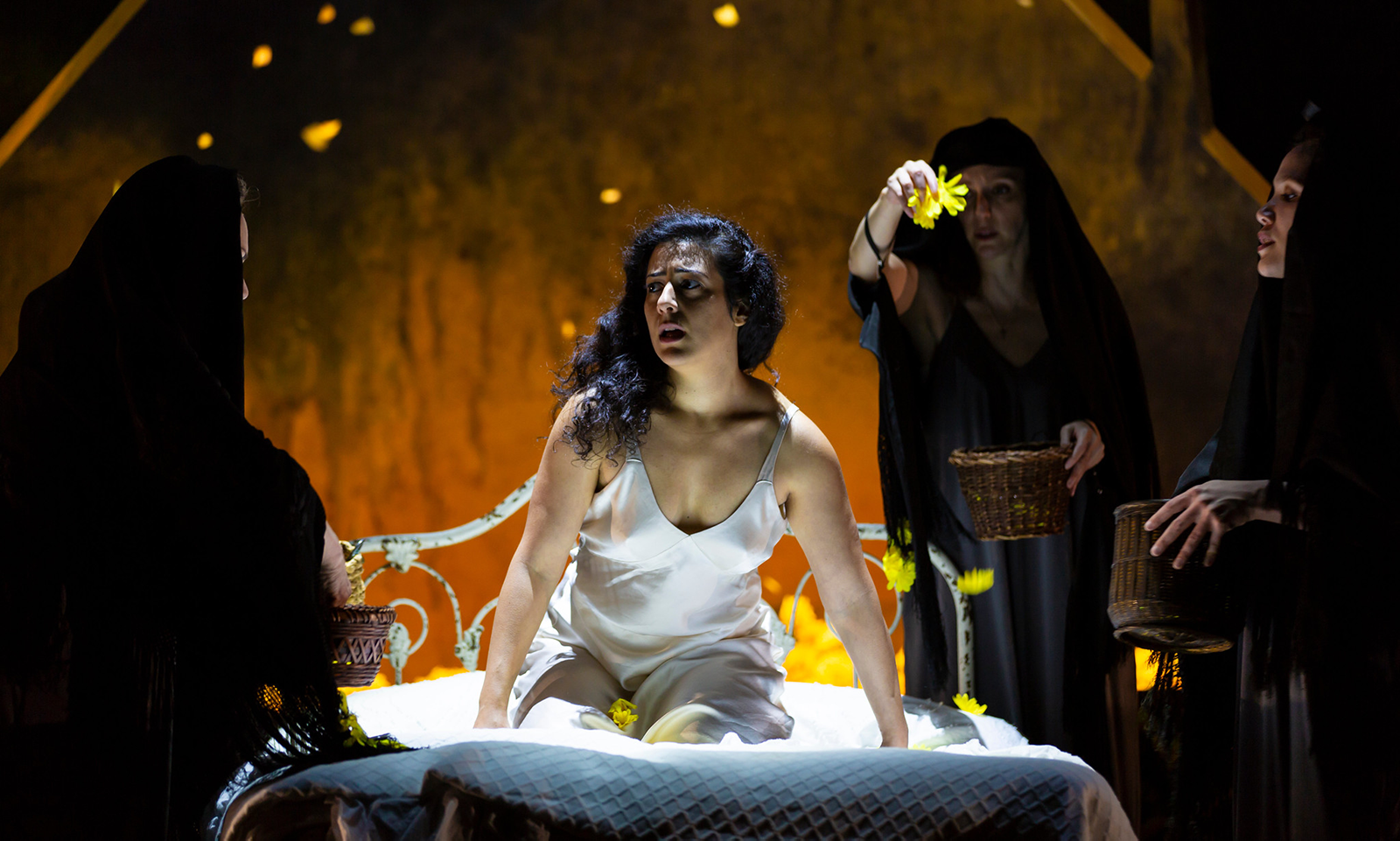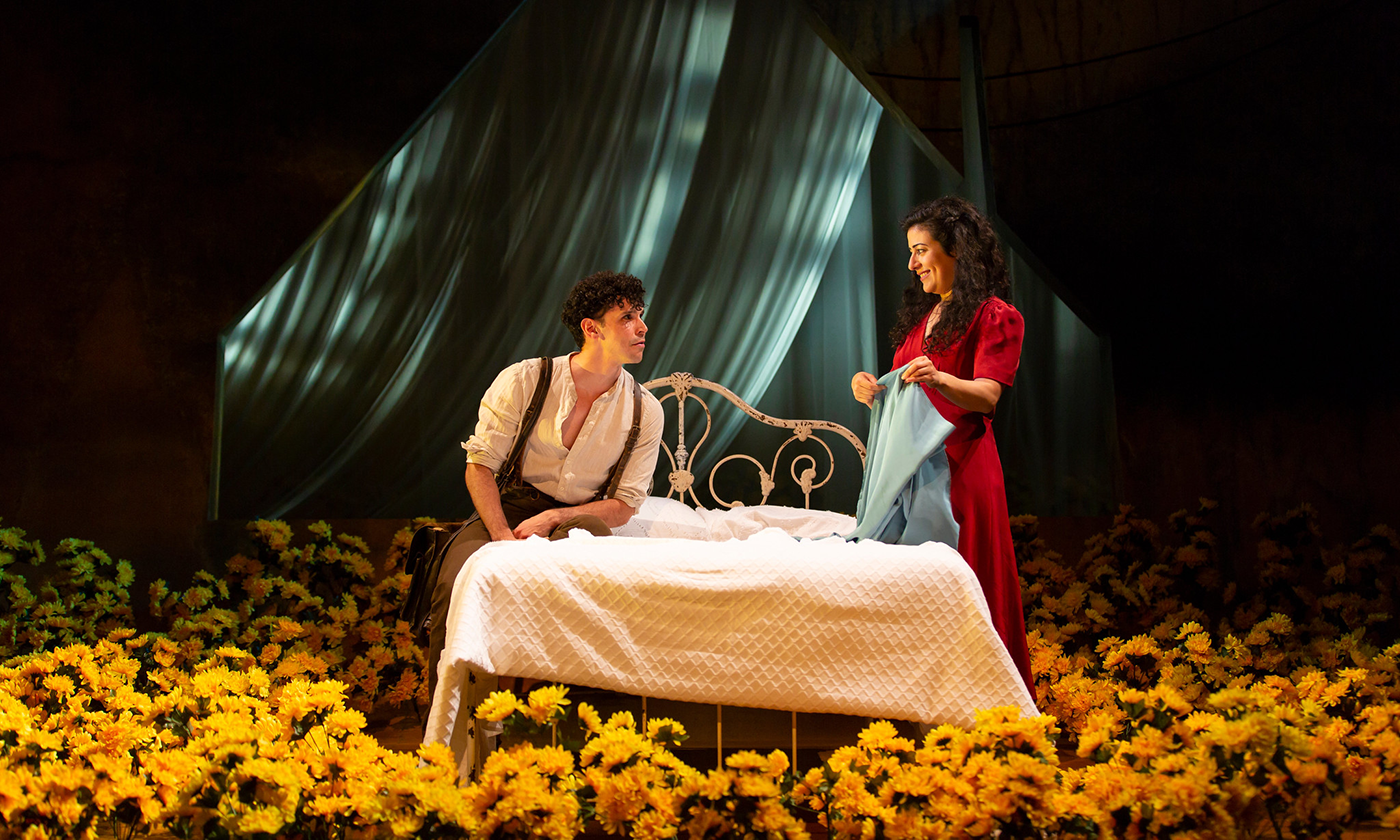In his poetry and plays, Lorca brings our primordial nature bubbling up through florid, rhythmic layering of symbolic images. However, this rich density can cover the story and characters in a web of lace, obscuring clarity. In her adaptation, Lopez simplifies speech while maintaining the metaphor-rich verbiage of the farmland where Yerma lives (the bedsheets smell like apples, recalling harvest, love, and Eden). Some of the more symbol-laden text, too beautiful to lose, becomes song, carrying the audience through the poetry. Flamenco-inspired music by Mark Bennett, performed by Fabio Pirozzolo and Juanito Pascual, implicates the play’s Spanish origins and accesses the pulse of blood only rhythm can, intensifying the audience’s connection to the deep emotional currents of the play. In tones earthy and ethereal, villagers celebrate the harvest, make the work bearable, lull babies to sleep—even if the baby, as in Yerma’s case, does not exist. These characters are Lorca at heart, but Lopez has made them approachable.
Melia Bensussen roots the production in deference to the laws of nature so palpably present in a woman’s body.
The elemental aesthetic in Olivera Gajic’s costume design, Cameron Anderson’s set, and Brian J. Lilienthal’s lighting also help to maintain the duende of Lorca’s original work. Making the spiritual palpable connects the audience to Yerma’s story on an instinctual level. In the first scene, Yerma wears white, newly married and certain that she’s pregnant. After bleeding onto her dress, she wears red, standing out from the other women who have all born children, who complement one another in brown, green, and modest florals. The men, in unbuttoned shirtsleeves and high-belted slacks, are sweaty in the heat of work, the climate, and the possibility of sex. A pure white bed calls for Yerma and her husband to try again throughout the play; it’s where the action begins with hopeful copulation and ends in mariticide. All around the bed, bunches of yellow flowers sprout from the stage, turning it into a field the characters harvest. This may be the play’s best idea, matching Lorca’s ability to make the emotional tactile. The disappearance of the flowers mimics the growing certainty that Yerma will remain barren. Sensual invitations into Yerma’s world—from a rust-colored house reminiscent of farming tools and orange clay to a painterly sky dripping like dyed cloth and a blood-soaked dress—help us commune with her throughout her descent, which Nadine Malouf so beautifully conveys.













Comments
The article is just the start of the conversation—we want to know what you think about this subject, too! HowlRound is a space for knowledge-sharing, and we welcome spirited, thoughtful, and on-topic dialogue. Find our full comments policy here